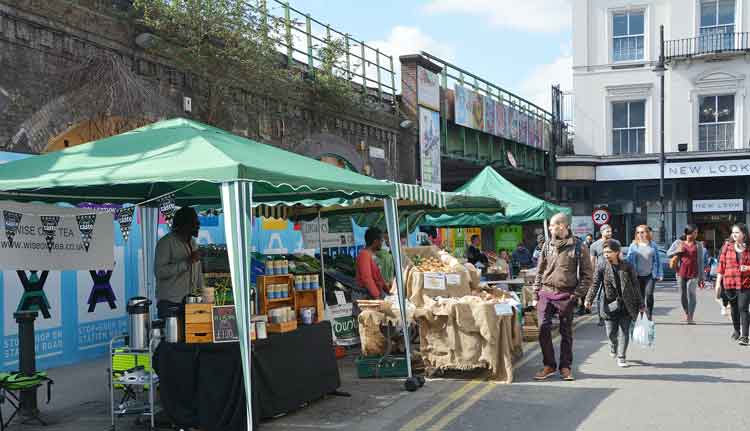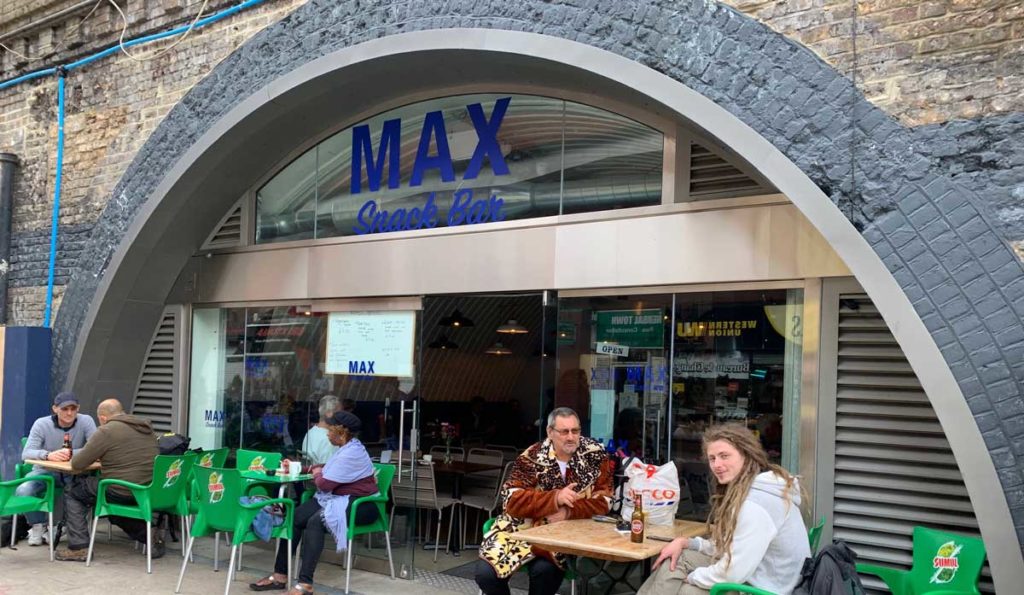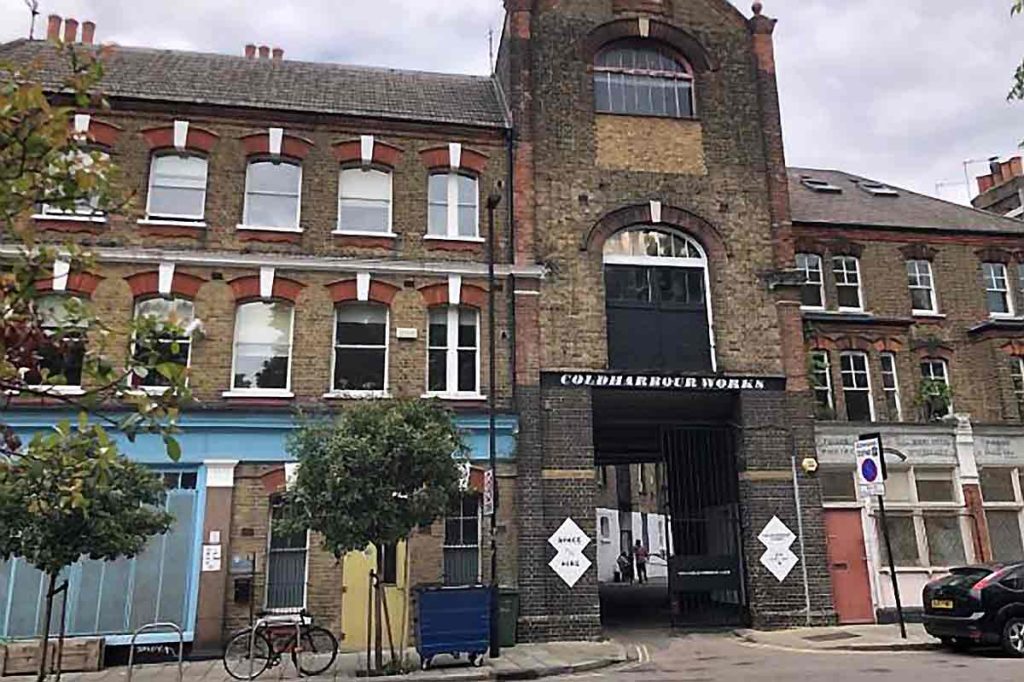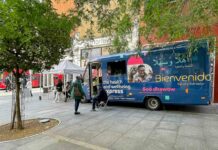
The first round of Lambeth council’s £6.5m Economic Resilience Fund will open for applications on 5 January.
It is intended to support businesses, freelances and self-employed people severely impacted by the pandemic. These may include businesses excluded from central government schemes, such as those in shared workspaces.
Many of these categories are represented in Brixton.
The council said the fund builds on the work it has already undertaken to support businesses and protect jobs.
A first phase will make £3.2 million available for immediate relief and support to more than 400 businesses in urgent need.
Applications open online at 9am on Tuesday 5 January 2021 and will close at 5pm on Friday 8 January.
“We anticipate that this funding will be oversubscribed,” the council said, explaining why it is providing advance notice of what businesses will need to apply to make the process as fair as possible.
Full details are on the council website.
More grants will be made available later in 2021, alongside addition increased business support.
The first phase of the fund will target businesses in the following priority categories.
Market traders and retail concessions
Many of Lambeth’s street markets and small concessions were forced to close during the second lockdown.
Government criteria for the now closed Local Restrictions Support Grant schemes meant businesses that do not pay business rates directly were unable to access its grants.
Lambeth council said it would support market traders with a permanent pitch of five days or more; businesses that rent a unit in a larger retail premises; and individuals who rent a space in places like nail bars, hairdressers and beauty salons. Grants will mirror the Local Restrictions Support Grant with awards of £1,334.

Independent hospitality and leisure (including supply chain)
Businesses in the hospitality and leisure sectors are some of the hardest hit by coronavirus-related closures.
Many businesses were only able to open in a limited capacity or not at all under Tier 2 restrictions and now face even tighter controls under Tier 3.
“These businesses add to Lambeth’s distinct vibrancy and are significant employers for local residents,” said the council.
Independently owned bars, restaurants, pubs, clubs, theatres, leisure facilities, museums and event venues will be prioritised in the first phase of the fund.
Those in the supply chain of the hospitality and leisure sectors, such as events-related businesses and restaurant suppliers, will also be eligible. Grants of £5,000, £10,000 and £25,000 will be available depending on the circumstances of the business.

Cultural and creative industries (including supply chain)
The cultural and creative industries are one of Lambeth’s largest sectors, but many businesses are unable to operate under ongoing restrictions.
“Arts and culture organisations contribute to Lambeth’s dynamic and vibrant atmosphere and provide thousands of local jobs,” the council said.
“We will support businesses in the cultural and creative industries, including the supply chain, freelancers and the self-employed, that have been severely impacted.”
Businesses such as costuming, set design, TV and film production and arts and culture charities will be prioritised in the first phase of the Economic Resilience Fund.
Grants of £5,000, £10,000 and £25,000 will be available depending on the circumstances of the business.

Businesses in shared workspaces
The council said shared workspaces, enabling businesses and start-ups to access flexible space and grow their ideas, provide a home for a large number of Lambeth’s small and medium businesses.
Many have been excluded from government support to date because they do not have their own business rates liability, despite contributing to these costs through an inclusive rent.
Shared workspaces, because of their flexible arrangements, are particularly vulnerable to businesses leaving – creating a knock-on impact for other tenants.
Help for severely impacted businesses in shared workspaces will support the wider infrastructure of the workspace by helping businesses to remain, the council said.
Businesses located in co-working offices; maker spaces; business incubators; artist studios and other flexible workspaces where an all-inclusive rent is paid may be eligible.
Grants of £5,000 and £10,000 will be available. They must be used for fixed property costs.
Eligibility
Awards will be assessed by how many of the above categories are met and the financial impact of ongoing restrictions on the organisation.
These criteria will be used to determine eligibility and grant amounts:
- Alignment with Economic Resilience Fund priority categories
- Value of ongoing fixed property costs
- Number of employees
- Support received to date
- Extent of lost income
- Whether the business has been legally required to close
- Willingness to engage with council employment initiatives supporting people back to work
- Willingness to engage with monitoring and evaluation activity to measure the impact of the fund
Applicants will need to demonstrate at least a 20% loss of income due to the restrictions to control the spread of Covid-19.
Only applicants demonstrating at least 50% loss of income will be eligible for the largest grant award (£25,000).
Freelances, the self-employed and sole traders will be eligible if their business ordinarily has a turnover equal to or more than a full time national minimum wage (approximately £15,800 a year).
Those in receipt of grants through the Self-Employed Income Support Scheme and/or in receipt of furlough pay will not be eligible unless they receive less than the London Living Wage (approximately £1,650 per month) through the government’s support schemes.
The council said that because limited funds are available, meeting the eligibility criteria will not guarantee a grant.
Evidence required
- Applicants will need the following information to apply:
- Business certificate of incorporation
- Unique business identifier (for instance: company registration number, unique tax return number (UTRN), VAT number)
- Business rates account number (if applicable)
- Information and evidence related to ongoing property costs, (such as: business rates bill, trading licence, tenancy or rental agreement, lease agreement, co-working membership agreement)
- Evidence of lost income due to the pandemic and the second national lockdown, (for instance: bank statements from September to November 2019 and September to November 2020, Xero / Sage / QuickBooks or equivalent profit and loss summary from December 2019 – November 2020, Xero / Sage / QuickBooks or equivalent profit and loss summary from December 2019 to November 2020, Evidence of lost or delayed contracts, HMRC tax returns (if self-employed).
The council recommends that businesses and individuals check the relevant web page which will be updated with frequently asked questions as they are received and answered.
The page will also carry the link to an online application form that will be available at 9am on Tuesday 5 January.







